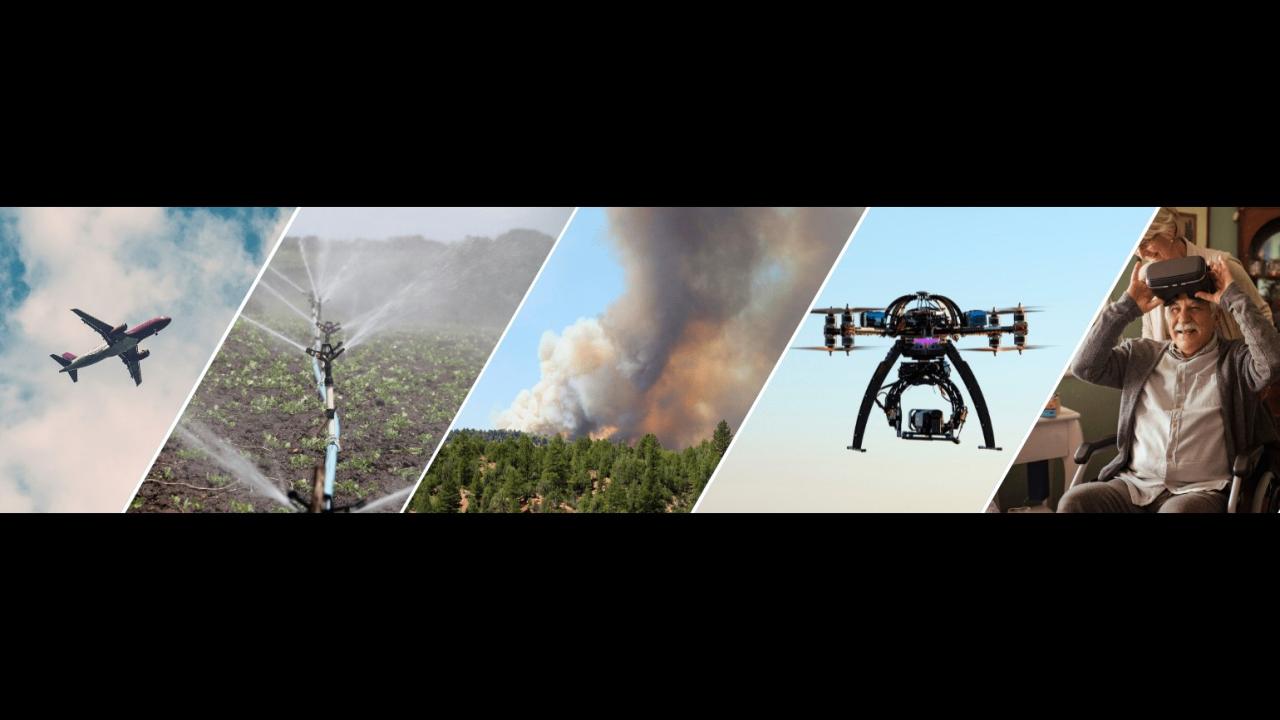
Four MAE projects win 2021 CITRIS Seed Awards
Four projects from the Department of Mechanical and Aerospace Engineering (MAE) received 2021 CITRIS Seed Awards from the Center for Information Technology Research in the Interest of Society and the Banatao Institute (CITRIS). CITRIS leverages research at four UC campuses to create innovative, interdisciplinary technology solution to solve society’s most pressing challenges.
Since 2008, the CITRIS Seed Funding program has supported more than 235 projects and over 425 researchers, resulting in extramural funding up to four times the initial investment within three years of completion. CITRIS Seed Awards facilitate the scientific groundwork, data collection and prototyping necessary to pursue larger research or commercialization awards that address major unsolved challenges.
The winning proposals receive a one-time $60,000 award toward innovative, early-stage research projects that emphasize collaboration across two or more institutions. Projects involving MAE faculty span assistive technology, unmanned aerial vehicles, ophthalmic imaging and aerodynamics and aim to make impacts on climate, firefighting and health.
Below are descriptions of each MAE project, written by CITRIS’ Megha Krishnan:
Air-drag-reducing microstructured surfaces (ARMS) for improved fuel efficiency
Principal Investigators: Grace Gu (Lead PI, UC Berkeley), Stephen Robinson (UC Davis)
Skin friction drag, i.e., air drag due to friction against surfaces, reduces the energy efficiency of various technologies, including aircraft, wind turbines and gas pipelines. These applications contribute up to 3.5 percent of total global carbon dioxide emissions, and increasing their fuel efficiency by even 1 percent could save over 180 million gallons of fossil fuel per year. This project intends to create a synthetic surface inspired by shark skin, a material that has been proven to reduce friction drag when compared to a smooth surface. Covering airplane panels, wind turbine blades and gas pipelines with this novel material could significantly decrease the amount of energy needed to power their use and have a positive impact on emissions.
Automated wearable ophthalmic imaging device
Principal Investigators: Parisa Emami Naeini (Lead PI, UC Davis Health), Iman Soltani (UC Davis)
Vision impairment is one of the most common disabilities worldwide, yet most cases can be prevented through regular eye exams and advanced ocular imaging. However, current imaging technologies are expensive and bulky, require skilled technicians to operate, and cannot accommodate a diverse range of patient needs and abilities. As a result, many people — such as children and the elderly, those in remote regions and those from lower socioeconomic backgrounds — don’t have access to vision-saving technology. This project will develop an automated wearable ophthalmic imaging device, consisting of a virtual reality headset with fundus imaging and optical coherence tomography systems. Patients will see entertaining visual stimuli while receiving vital diagnostic care. The instrument is intended to be operable in any setting, and will increase equitable access to medical technologies across socioeconomic statuses and geographic areas.
Haptic smart phone-cover: A real-time navigation system for individuals with visual impairment
Principal Investigators: Iman Soltani (Lead PI, UC Davis), Parisa Emami Naeini (UC Davis Health), Jonathon Schofield (UC Davis)
While many researchers have thoroughly investigated assistive technologies to help people with visual impairments navigate and experience their environments in rich detail, few devices have been adapted beyond research spaces. This project aims to take assistive aids out of the laboratory and into the world by creating a tactile phone cover to provide the user with a haptic map of surrounding obstacles using controllable surface topography. By relying on touch, rather than sound, this technology allows for people with visual impairments to be aware of their surroundings while also being able to sense their environment in richer detail. This technology can help individuals with visual impairments to move around their surroundings more independently and also inform further development of haptic assistive devices.
Uncrewed aerial vehicle swarms for large-scale and real-time air toxin measurement near wildland-urban-interface fires
Principal Investigators: Zhaodan Kong (Lead PI, UC Davis), Deborah Bennett (UC Davis Health), Anthony Wexler (UC Davis), Thomas Young (UC Davis)
While California has faced numerous hazardous wildfires in recent years, fires at the wildland-urban interface (WUI) are particularly dangerous, as they burn synthetic compounds that can make their smoke more toxic than wildland blazes. Currently, WUI fires can be only partially mitigated by human responders and the resulting smoke plumes are poorly understood while they travel across long distances. To provide support in the short term, this project will build and deploy a swarm of uncrewed aerial vehicles (UAVs) and use them to measure a range of toxic gases and aerosols in WUI plumes during active fire events. In the long-term, this research aims to develop UAV swarms that can autonomously assess fire risks, predict the transfer of outdoor pollutants into indoor environments, and better characterize the health effects of toxic wildfire plumes.
